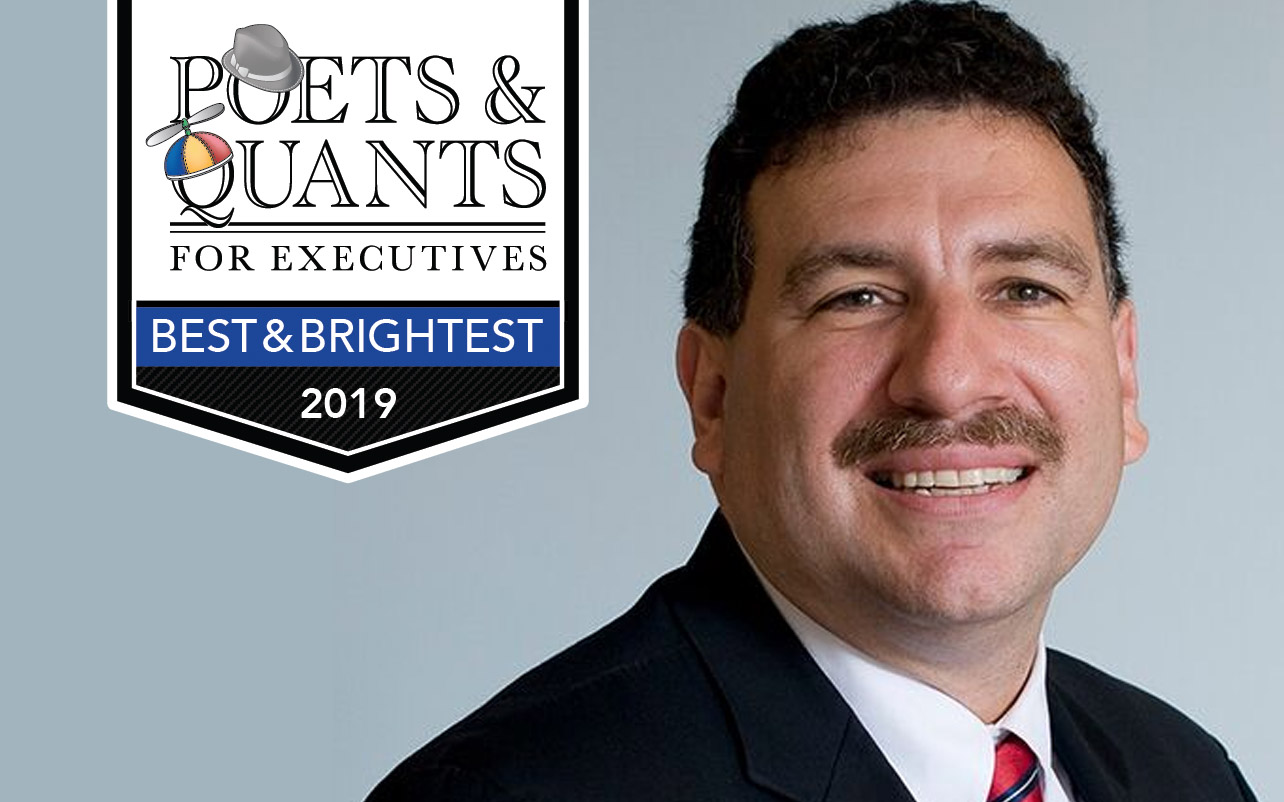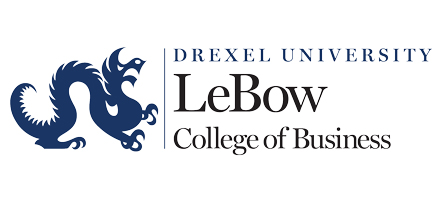
Christopher J. Kwolek, M.D.
Massachusetts Institute of Technology (MIT), Sloan School of Management
“Healthcare leader, innovator, clinical researcher, mentor, transformation agent, educator, sensemaker, chair, entrepreneur, vascular surgeon.”
Age: 57
Hometown: Born in Philadelphia, Pennsylvania but currently live in Boston, Massachusetts
Family Members:
Wife: Deborah Kwolek, M.D.
Children: Four boys and three girls ranging in age from 11 years to 30 years.
Fun fact about yourself: My ten minutes of fame came on an episode of ABC’s Save My Life Boston Trauma.
Undergraduate School and Degree:
- University of California, Los Angeles, BA, Economics/Pre-Med
- University of California, San Francisco, MD
- New England Deaconess Harvard Surgical Service – General Surgery Residency
- Massachusetts General Hospital – Vascular Surgery Fellowship
- Arizona Heart Institute – Endovascular Surgery Fellowship
Where are you currently working?
- Newton-Wellesley Hospital, Chair, Department of Surgery
- Massachusetts General Hospital, Attending Vascular Surgeon
- Harvard Medical School, Associate Professor of Surgery
Extracurricular Activities, Community Work and Leadership Roles:
- Castle Connolly America’s Top Doctors 2006 – 2019 (14 years)
- Boston Magazine Top Doctors (Vascular Surgery) 2008 – 2019 (12 years)
- Co-Chair – Partners Procedural Products and Technology Steering Committee
Which academic or extracurricular achievement are you most proud of during business school? It was working with the MIT Student Health service as part of our Health care laboratory (H-Lab) action learning project to improve the availability and effectiveness of student mental health services at MIT. I learned that awareness of and access to services has become a national issue on college campuses throughout the US. I had the privilege to work with a team of fellow MBA and Masters students, MIT staff, faculty, and administrators who are dedicated to solving these problems and have already made a significant impact.
What achievement are you most proud of in your professional career? I am most proud when I can inspire other surgeons, residents, fellows, and other students to innovate and change the world for the better. I have tried to teach, inspire, mentor, and train both clinicians and non-clinicians to make a difference in healthcare and in the world.
Who was your favorite MBA professor? There are too many to name, but I will provide you with two:
Rodrigo Verdi – For making financial accounting intuitive, understandable and exciting (Remember, I was an Economics major).
Retsef Levy – For teaching us to ask the hard questions when starting a consulting project and not just accepting what people say the core problem is.
What was your favorite MBA course and what was the biggest insight you gained about business from it? I will give you two again:
Deborah Ancona – Discovering your Leadership Signature. This course showed me how important our family, cultural and work backgrounds are in understanding our development as leaders.
Roberto Fernandez – Organizational Processes. This course taught me the importance of understanding the dynamics of change management and how important a role culture, politics, and the strategic design of the organization play when trying to innovate or move an organization forward.
Why did you choose this executive MBA program? I chose the MIT Sloan Executive MBA program because of the intellectual rigor, the emphasis on analytics along with the development of leadership skills, and the outstanding reputation of the faculty. In addition, the MIT Sloan mission statement: “to develop principled innovative leaders who improve the world …” resonated strongly with my core values.
What did you enjoy most about business school in general? I enjoyed working with an incredible group of executive MBA students from multiple industries and backgrounds. I learned as much from their incredible insights and wisdom as I did from the MIT professors.
Give us a story during your time as an executive MBA on how you were able to juggle work, family, and education? When I enrolled in this very rigorous program, I realized that I would have to make some significant tradeoffs in order to obtain the most out of this educational experience while continuing to work clinically, build successful programs in my administrative role, and continue to see my family. I made a conscious decision to stop traveling to 90% of my academic meetings and turned down opportunities to speak and teach at both national and international training courses for a two-year period. This tradeoff clearly made the past two years more balanced.
What advice would you give to a student looking to enter an executive MBA program? If you are thinking about enrolling in one of these programs, then thoroughly analyze the costs in terms of time, energy, and economics and then go for it and do not look back. However, be prepared that this will radically change your perspectives and possibly even your view on what you want to do next in your career.
What is the biggest myth about going back to school? The biggest myth is that the E in Executive MBA stands for easy! This will be a lot of hard work. The professors, fellow students, and teaching assistants are all extremely bright and motivated. So make sure to brush up on your math skills, your Excel and computer skills, and make sure that you write well. All that being said, the MIT Sloan staff were outstanding and the students were extremely collaborative and went out of their way to help one another.
What was your biggest regret in business school? I honestly do not have any regrets about embarking upon this journey. My only wish is that I could spend more time getting to know the stories of each of my classmates.
Which MBA classmate do you most admire? Mehra Golshan, M.D. has been an inspiration to all of us! He is a superb clinician, a well-respected clinical researcher, and surgeon, a caring husband and father, and a humble and thoughtful colleague and collaborator. He has continued to stay engaged and involved with completing the Executive MBA program while going through a very challenging medical problem. He has handled this with grace, humor, and aplomb.
“I knew I wanted to go to business school when…I finished a 10 day course on Leadership Development for Physicians in Academic Health Centers in 2014 at the Harvard School of Public Health and realized that there was an entire skill set with respect to financial analysis, operations management, conflict resolution and negotiation, leadership development, and health policy that we did not receive in medical school or postgraduate training. This was reconfirmed when I accepted the position as Chair of the Department of Surgery and knew that I would require these skills in order to evolve into an excellent leader.”
What is your ultimate long-term professional goal? I wish to transform how we think about and deliver healthcare services within the US and globally. More specifically I want to lead a multidisciplinary team of innovators and entrepreneurs who can focus on revolutionizing how we provide cardiovascular and stroke care within the US.
In one sentence, how would you like your peers to remember you? I hope that my colleagues and peers will remember me as a principled, innovative and visionary leader who has been able to successfully help transform the world of healthcare.
What are the top two items on your bucket list?
- I wish to celebrate the successful marriages of all seven of my children with my wife and extended family.
- I wish to file patents for at least five different devices, mobile apps, or applications of new technology that will help to transform healthcare delivery.
What made Chris such an invaluable addition to the class of 2019?
“It is our distinct pleasure and honor to nominate Chris Kwolek for Poets & Quants Top 100 Executive MBA Graduates from the MIT Executive MBA Class of 2019. Chris is the leader we all strive to be. He has unselfishly developed his career in order to benefit those not only around him but also for humanity as a whole. He is the example of the MIT Sloan mission of being a “principled innovative leader who can improve the world.” Chris wants to revolutionize the healthcare system, specifically in cardiovascular care, and has worked in partnership with others in the MIT community to develop technology that will better the delivery of healthcare in the future.
Chris has been an active member of not only the MIT EMBA community but MIT as a whole. Being an experienced healthcare professional, Chris has become a valuable point of contact for the MIT Initiative for the Healthcare Systems Innovation. He worked with MIT Student Health Services as a student in MIT’s Healthcare Laboratory class, working on a project focused on improving the availability of the mental health services on the MIT campus. There already has been a visible positive impact from his work. While being in the EMBA program, Chris also pursued the Healthcare Certificate from MIT and has demonstrated that he can achieve what he sets his mind to. Even with the extra course load required for the certificate, Chris has academically pushed himself to be one of our top performing students. On top of all his responsibilities with his family, work, and school, Chris takes time out of his schedule to meet with prospective students for the program and is a great ambassador for the EMBA, whether it’s speaking at MIT or around the country on how the EMBA has impacted him. Chris represents the very finest traditions of MIT and MIT Sloan as a distinguished leader and mentor.”
Johanna Hising DiFabio
MIT Executive MBA Assistant Dean
Georgia Perakis
MIT Executive MBA Faculty Director and Faculty
DON’T MISS: THE ENTIRE LIST OF THE BEST & BRIGHTEST EXECUTIVE MBAs OF 2019 or RANKING THE BEST EMBA PROGRAMS IN THE U.S.




